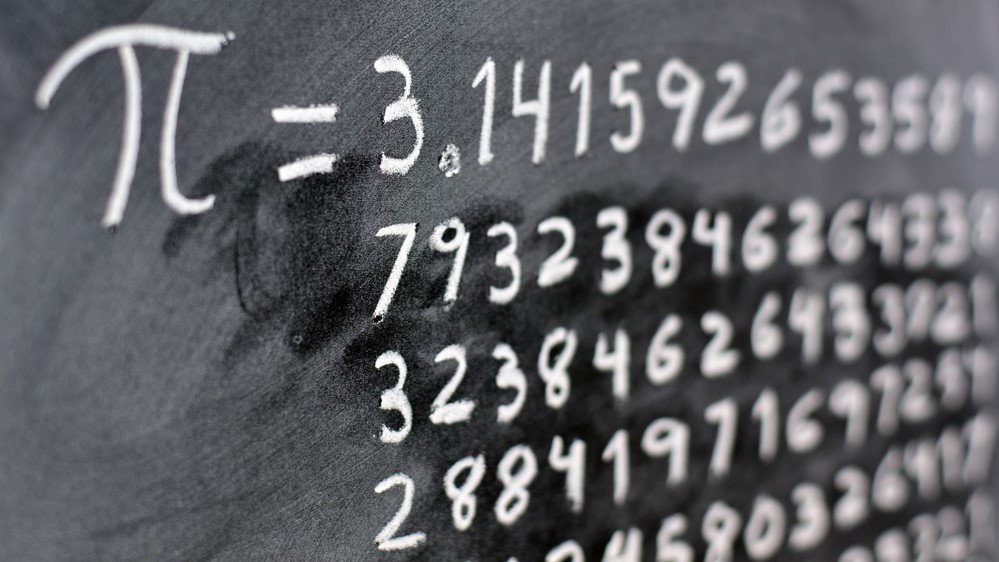Pi calculated to a record-breaking 62.8 trillion digits
Supercomputer took 108 days to run the calculations.
Get the world’s most fascinating discoveries delivered straight to your inbox.
You are now subscribed
Your newsletter sign-up was successful
Want to add more newsletters?

Delivered Daily
Daily Newsletter
Sign up for the latest discoveries, groundbreaking research and fascinating breakthroughs that impact you and the wider world direct to your inbox.

Once a week
Life's Little Mysteries
Feed your curiosity with an exclusive mystery every week, solved with science and delivered direct to your inbox before it's seen anywhere else.

Once a week
How It Works
Sign up to our free science & technology newsletter for your weekly fix of fascinating articles, quick quizzes, amazing images, and more

Delivered daily
Space.com Newsletter
Breaking space news, the latest updates on rocket launches, skywatching events and more!

Once a month
Watch This Space
Sign up to our monthly entertainment newsletter to keep up with all our coverage of the latest sci-fi and space movies, tv shows, games and books.

Once a week
Night Sky This Week
Discover this week's must-see night sky events, moon phases, and stunning astrophotos. Sign up for our skywatching newsletter and explore the universe with us!
Join the club
Get full access to premium articles, exclusive features and a growing list of member rewards.
Researchers in Switzerland are set to break the record for the most precise value of the mathematical constant pi, after using a supercomputer to calculate the famous number to its first 62.8 trillion decimal places.
Pi is the ratio of a circle's circumference to its diameter. The name "pi" comes from the 16th letter in the Greek alphabet and has been used by mathematicians to represent the constant since the early 18th century. The first 10 digits of pi are 3.141592653, but the constant is what is known as an irrational number, meaning that it cannot be expressed as a common fraction and has an infinite number of decimal places.
On Aug. 5, researchers from the University of Applied Sciences of the Grisons in Switzerland announced that they had broken the record for the most accurate value of pi by more than 12 trillion decimal places, using a computer at the Competence Center for Data Analysis, Visualization and Simulation (DAViS). The record attempt has yet to be officially confirmed by Guinness World Records.
Related: 10 surprising facts about pi
"Breaking the record is just a side effect of our work in preparing our high performance computer infrastructure for work in research and development," lead researcher Thomas Keller, a computer scientist at the University of Applied Sciences of the Grisons, told Live Science.
Knowing more digits of pi isn't particularly important for mathematics.
But calculating the value of pi to high precision has long been used as a benchmark to test the processing power of computers. In 2019, a Google cloud computing system calculated the constant's value to more than 31 trillion decimal places, and in 2020, Timothy Mullican of Huntsville, Alabama, founder of a nonprofit called North Alabama Charitable Computing, calculated 50 trillion decimal places, using his personal computer, according to Guinness World Records.
Get the world’s most fascinating discoveries delivered straight to your inbox.
The DAViS team not only broke Mullican's record but also did so in roughly a third of the time —
taking just 108 days and 9 hours, compared with Mullican's 303 days — even though they used the same algorithm to run the calculations.
The DAViS computer outperformed the previous record holders thanks to a boost in random access memory (RAM), Keller said.
"Calculating to 62.8 trillion decimal places requires around 316 terabytes of RAM [around 324,500 gigabytes]," Keller said. "Such a machine cannot be bought, to our knowledge, and if one could, it would be extremely expensive."
So the computers used hard disks to beef up the RAM, Keller said.
The researchers plan to use the computer that performed the calculations to conduct computational fluid dynamics, deep learning and RNA analysis in the future, Keller said.
The team has no plans to calculate more of pi's decimal places and is confident that before long, someone will snatch the record away, Keller said. "Looking at the previous pace of record setting, I anticipate the next successful record-breaking attempt any time in the space of the next two years."
Originally published on Live Science.

Harry is a U.K.-based senior staff writer at Live Science. He studied marine biology at the University of Exeter before training to become a journalist. He covers a wide range of topics including space exploration, planetary science, space weather, climate change, animal behavior and paleontology. His recent work on the solar maximum won "best space submission" at the 2024 Aerospace Media Awards and was shortlisted in the "top scoop" category at the NCTJ Awards for Excellence in 2023. He also writes Live Science's weekly Earth from space series.
 Live Science Plus
Live Science Plus











